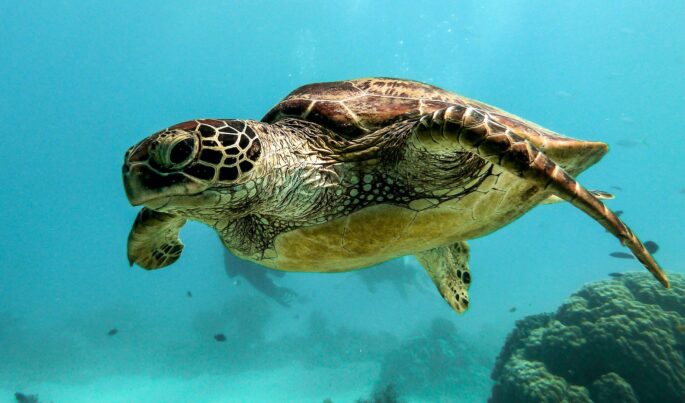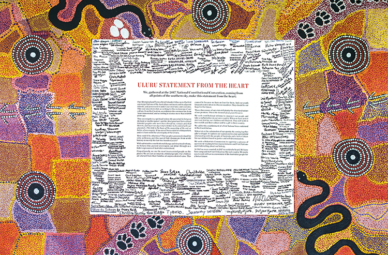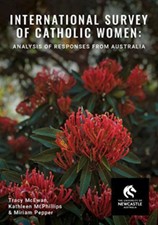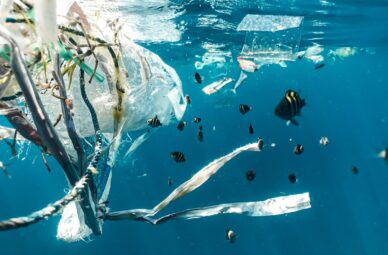
Deep Sea Mining in the Pacific
March 23, 2023In mid-January 2023 the French Parliament voted to ban deep-sea mining in its waters, in a move against the controversial practice.
Deep-sea mining uses heavy machinery on the ocean floor to extract small rocks containing rare metals such as cobalt, nickel and manganese, which are used in electric car batteries.
But conservation groups and scientists are concerned about the potentially devastating effect deep sea mining could have on marine ecosystems, and also the climate, as huge amounts of CO2 are stored in the ocean depths. The world’s ‘deep seas’ make up 90% of the ocean. Because they are so inaccessible little is known by scientists about the species and ecosystems.
The Metals Company, a Canadian enterprise, is planning to start mining a section of the Pacific Ocean called the Clarion Clipperton Zone and in September 2022 was granted a ‘test permit’ over 3,000 tonnes of nodules (small rocks) at a depth of 4,000 metres. Mining involves scraping off the top layer of the ocean floor, separating the nodules from the mud, using a giant tube to pump them to a surface ship, and returning the water and fine particles through another tube. Scientists are just starting to study species at these levels, shrimps, octopods and sea anemones which have adapted to living in depths up to 5,000 metres. According to the Pew Charitable Trusts fact sheet ‘monitoring of experimental dredge sites in deep-sea sediment has shown that decades after a site is disturbed, few, if any communities of organisms have recovered.’
Four Pacific Island countries – Nauru, Tonga, Kiribati and Cook Islands – have given the go ahead for deep-sea mining projects, and in July 2021 Nauru triggered a United Nations rule that gives authorities two years to come up with regulations. However, the Federated States of Micronesia, Samoa, Fiji and Palau are calling for a moratorium on deep-sea mining. The Pacific Blue Line (PBl) which includes the Pacific Network on Globalisation (PANG), Pacific Conference of Churches (PCC), Pacific Islands Association of NGOs, World Wide Fund for Nature Pacific and the Development Alternatives with Women for a new era (DAWN) are calling for a global ban on deep sea mining.
‘Our position to ban deep sea mining is very clear. It’s destructive, our ocean is already facing multiple destruction from pollution… We don’t want to see any further destructions of our marine resource. The ocean, to us is a lifeline to the indigenous people of Samoa and the Pacific,’ said Aiono Sapa Saifaleupolu of O le Siosiomaga Society Inc, Samoa.
However, as islanders call for a ban Australia’s independent national science agency, CSIRO, has agreed to work with The Metals Company, alongside New Zealand’s National Institute of Water and Atmospheric Research. In a statement CSIRO said it had a major role in the “provision of scientific advice to support decision making so that decisions can be made on the best available scientific advice.”
According to a 2020 report from the World Bank a 500% increase in production of minerals, such as graphite, lithium and cobalt, will take place by 2050 to meet the demand in the transition to green technologies. Nickel and cobalt are needed for high performance batteries for longer range electric vehicles.
“If we can’t find enough of those minerals that we can easily extract in an environmentally sensitive way, or that we can procure through recycling and reuse, some of them may instead come from deep sea mining,” says Dr Chris Vernon, a senior research scientist who heads the CSIRO’s Green Minerals Technologies Initiative.
But the European Parliament, the European Commission and the International Union for the Conservation of Nature are supporting a ban on deep sea mining, and multinationals such as Google, Microsoft, Samsung, Tesla, BMW and Volvo have committed not to source minerals from the deep seabed.
Sources: ‘Palau Leader Warns of ‘Catastrophic’ Consequences of Deep-Sea Mining’ by Steven Trask, 9 December 2022, Agence France-Presse; https://www.pacificblueline.org/pacific-blue-line-statement; ‘‘Blue Peril’ reveals how deep-sea mining would impact Pacific Islands’ by Deborah Pranis, 1 December 2022, China Dialogue Ocean; ‘CSIRO joins deep-sea mining project in Pacific as islands call for industry halt’ by Graham Readfearn, 14 July 2022, The Guardian; ‘Creating a blueprint for responsible, low-impact deep-sea mining’ by Ruth Dawkins, 29 November 2022, ECOS, CSIRO.
This article appeared in the GJOP Pacific Outlook Bulletin, Issue 35, February 2023. Photo by Giorgia Doglioni on Unsplash.










